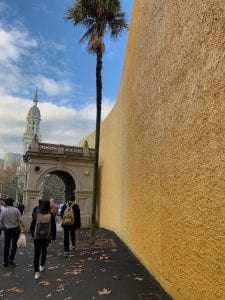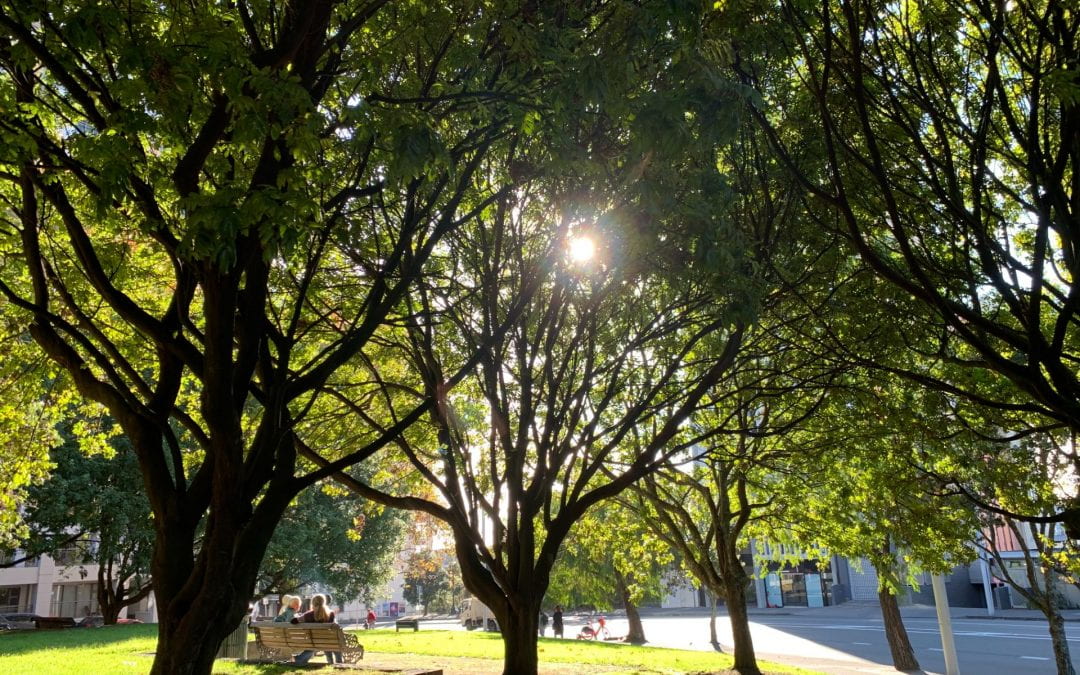I think it’s fair to say the climate emergency can’t be dismissed anymore. Whether we like it or not, the effects will keep getting worse, beyond what we can tolerate, and finally affect the quality of life we so enjoy. Everyone knows what’s at stake, all the things we rely on but may not give our attention to: air, food, water, temperature. Without a healthy climate, nothing else can thrive. According to the World Bank, there are 220 million tertiary students in the world. 380,255 thousand are from Aotearoa. Each of us has a carbon footprint and we create waste by buying disposable products, supplying garbage trucks with bags of garbage every week, and leaving a mark on the world that future generations will inherit. This means it’s important to think about how as a person, you can minimize your effect on the climate, and your habits in all your roles: member of a household, citizen, consumer, employee, a student. With uni coming next year, now is a good time to think about this as you prepare and buy your furniture for a flat or stationery.
As students, we can develop more sustainable habits. 70% of plastic is burned, not recycled. Recycling starts with buying, so it’s better not to buy plastic at all.
Stationery:
- Using pencils instead of plastic pens
- If you need pens, avoid disposable stationery, and buy durable products instead
- Taking a water bottle to uni (preferably metal) instead of buying water on-campus
- Buying glass products instead of plastic
- Eco-friendly laptop cases
- Look for ingredients like cork, straw, hemp, recycled paper, felt, or made of recycled products. You can find them online at:
Or look for them in person and any eco-friendly information on the label.
General Purchases:
- Packing a lunch or taking a container if you’re buying lunch, and taking your own cutlery. (This also helps avoid food waste.)
- Buying a bamboo toothbrush
- Using online resources instead of printing all your notes or purchasing books (also cost-effective)
- Use a reusable straw/coffee cup for drinks you buy on-campus
- Avoiding fast fashion, and thrifting instead, or buying durable clothes
Commuting
- Walking, biking, or using public transport when commuting (This is also much cheaper than gas, parking, and Uber fees.)
Living Habits (Flatting and First-Year Accommodation)
- Sorting recycling and making sure recycling is clear of food, waste, or plastic (E.g. tipping out the contents of drinks, rinsing them, and removing the lids before putting them in the bin.)
- Incorporating more plant-based meals. According to The Guardian, a meat-free diet is the single biggest way to minimize your impact on the planet.
- If you live in shared accommodation and have a light laundry load, consider splitting the use of a washer and dryer with someone else washing and drying clothes with someone else, and/or buying a clothes rack instead of using the dryer (This also helps save money.)
- If you live in first-year halls, serving yourself realistically, instead of filling your plate and throwing out most of it later (You can always get seconds after the dinner hour closes or get extra salad, dessert, or toast if you’re still hungry.)
- If you’re furnishing a flat, buying second-hand furniture and storage containers instead of buying new ones (Try TradeMe, Facebook marketplace, or borrow them from a friend or family member.)
One person alone can’t get rid of climate change, but we can all do our part. It’s only fair – animals can’t speak for us, but their lives matter just as much as ours, and the planet isn’t ours alone. It’s in our interest, and theirs, to take care of it. When given a choice between a disposable straw and taking yours out of your bag, reach for your bag – and somewhere in the universe (think of the Good Place), a turtle might be saved, and there will be one less straw in the ocean floor. Think of the fish and seagulls when you have a choice to spend 50 cents on a plastic bag. Think about the air quality for future generations if you feel lazy and want to take an Uber when you could walk. Obviously we need to be realistic and it’s okay not to be sustainable all the time, but it does make a big difference. Remember, there’s no backup planet or a Plan B.

This is on Symonds Street, close to the Humanities Building and the Law School. Incorporating these habits will help make sure life keeps looking like this 🙂

